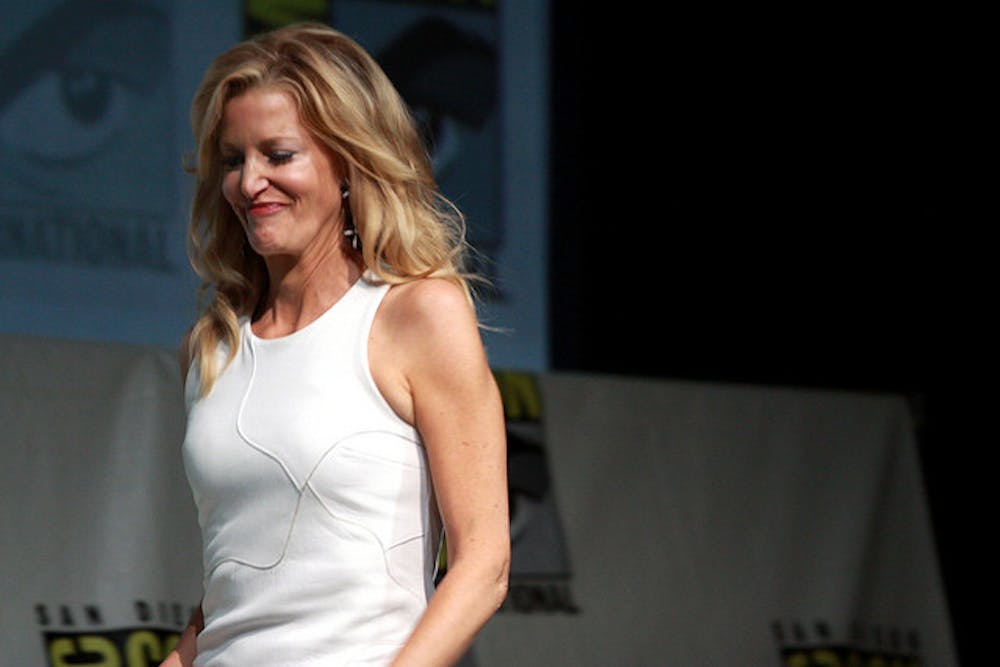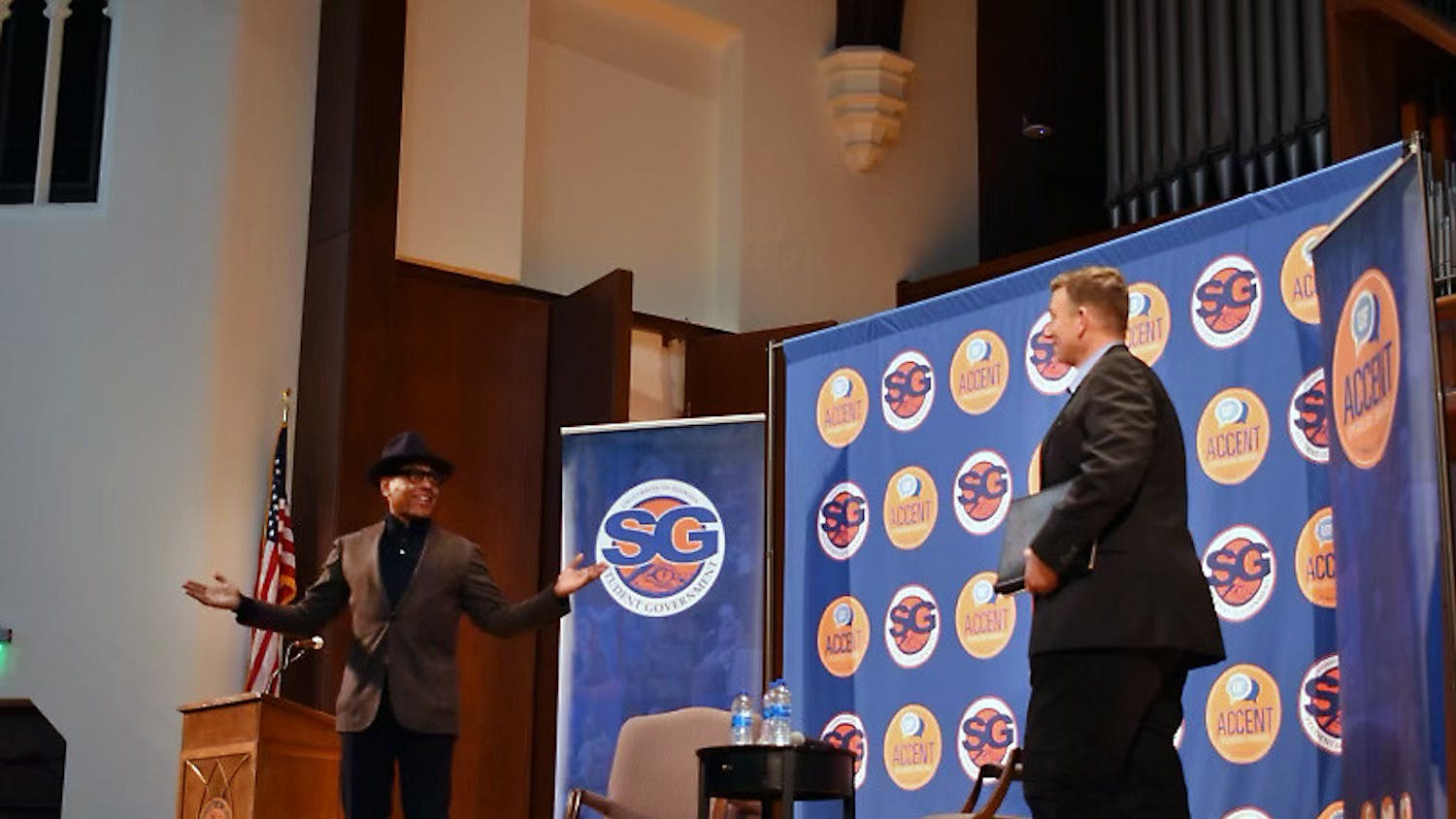I take “Breaking Bad” pretty seriously. When I’m not writing about women here, I’m writing TV reviews for another website, and these final episodes of “Breaking Bad” are taking over my life.
This isn’t a cry for help - though if you start seeing encrypted messages in blog posts after the series finale, it probably is. For now at least, besides writing about the show, I love to talk about it, and the inevitable issue of Skyler White always comes up and ruins what could have been a beautiful friendship.
I say “issue” because her character has become such a point of conflict for fans of the AMC original series that there is clear and present (danger) divide between Skyler White supporters and the rest of the world.
Anna Gunn is just an actress. She’s an actress who has played the role of a suspicious wife, a fierce, maternal protector and more recently, an accomplice, for five years. She’s also a real-life example of someone who became associated with the character she plays on a daily basis and has been unable to shake the negative connotation associated with the name Skyler White outside of filming.
It took me by surprise when I read Gunn’s New York Times Op-Ed piece titled “I have a character issue,” which detailed her journey playing the wife of a former high school chemistry teacher who turned to cooking methamphetamine, initially, to pay for cancer treatments and provide financial security for his family. What surprised me was that the piece was published now, during the final episodes.
Hate for Skyler White has been prominent since the first season of “Breaking Bad,” when she was merely suspicious of her husband, Walt, cheating on her. Skyler is a sharp individual and did some digging. When she got close too finding out the truth though, Walt always came and pulled some magician’s excuse out of his bag of tricks, and so has been the power struggle between the two. Eventually, Skyler caught on to the B.S., and apparently, her demand for honesty was insulting to fans that wanted to see the show’s antihero/protagonist breeze through a life of crime. Enraged fans started hate groups, like “I Hate Skyler White,” on Facebook, which Gunn mentions briefly in the article.
“The consensus among the haters was clear,” Gunn wrote. “Skyler was a ball-and-chain, a drag, a shrew, an ‘annoying bitch wife.’”
When I meet someone who views Skyler as nothing more than a nuisance in an incredibly written show, I can’t help but cut them off.
“So you mean, if you were married to a person for 16 years and love this person enough to look out for their cholesterol and make them breakfast every morning,” I’d say, “you would be OK with the fact that they’re all of a sudden keeping secrets from you, cooking meth and attracting henchmen to your home where your teenage son and infant daughter reside?”
“Oh, like, no obviously – but …”
“But, once you’re involved, the love of your life psychologically abuses you and forces you to become an accomplice using the only thing you have left, against you: your children.”
In my imaginary scenario, this is where the mic-drop would happen.
A show’s protagonist is not always “the good guy.” Depending on the point of view, such as in the case of “Breaking Bad,” a show’s protagonist could be categorized in society as a villain. However, because Walt and his alter ego, Heisenberg, started off from humble beginnings and entered a lucrative drug business out of crisis, he is given society’s nod of approval – and I’m not against this. I’m a fan who doesn’t want to see Hank’s victory at the end of the series. I don’t necessarily believe in character punishment and biblical references to sinners and penance. However, I don’t believe in Walt getting away with being a manipulative spouse seen as an angel either.
By definition, if Walt is simultaneously a complex protagonist and an antihero, then Skyler is both an antagonist and villain?
People don’t react to male actors the way they react to female actors playing antagonists.
“I enjoy taking on complex, difficult characters and have always striven to capture the truth of those people, whether or not it’s popular,” Gunn said.
She described Skyler using words like “multilayered” and “morally compromised,” but despite the praise she gives creator Vince Gilligan in creating a character who is anything but the trite damsel in distress, Gunn admits that “at the end of the day, [Skyler] hasn’t been judged by the same set of standards as Walter.”
Daniel Day Lewis and Heath Ledger were lauded for their performances as complex characters that were by no means seen as virtuous.
Heath Ledger’s Joker in “The Dark Knight” was an antagonist to the more classical sense of the hero-protagonist, Batman. Even as a clear enemy, using the black-and-white definition of protagonists and antagonists, the Joker was a favorite among fans.
Or look at another TV show not far from “Breaking Bad”: AMC’s “Mad Men.” The character of Betty Draper probably has the most comparable fan reaction to Skyler White on television today. Betty’s stone-cold disposition is a product of suburban depression and vain issues from childhood. She is just as complex of a character as her husband, Don Draper, yet fans choose to overlook her depth in favor of rooting for the womanizing orphan and his serial cheating. In the same manner that fans want Don to go through the course of the show unscathed, they want Walt to succeed.
Betty and Skyler are their respective husband’s equals. One could argue that Skyler is even stronger than Betty, but there is no doubt they are equally matched to their male counterparts.
Intense hatred for Skyler, Betty or any female character, when she was written as equally complex and challenging as a man, is evidence that we haven’t fully progressed to the point where women are truly seen as equals.
“Because Skyler didn’t conform to a comfortable ideal of the archetypical female, she had become a kind of Rorschach test for society, a measure of our attitudes toward gender,” Gunn said.
So when someone says they hate Skyler White, I may or may not cut them off. I may just look at him/her incredulously and wonder why so many people are programmed to believe that female minor characters don’t deserve the praise that male characters do.






